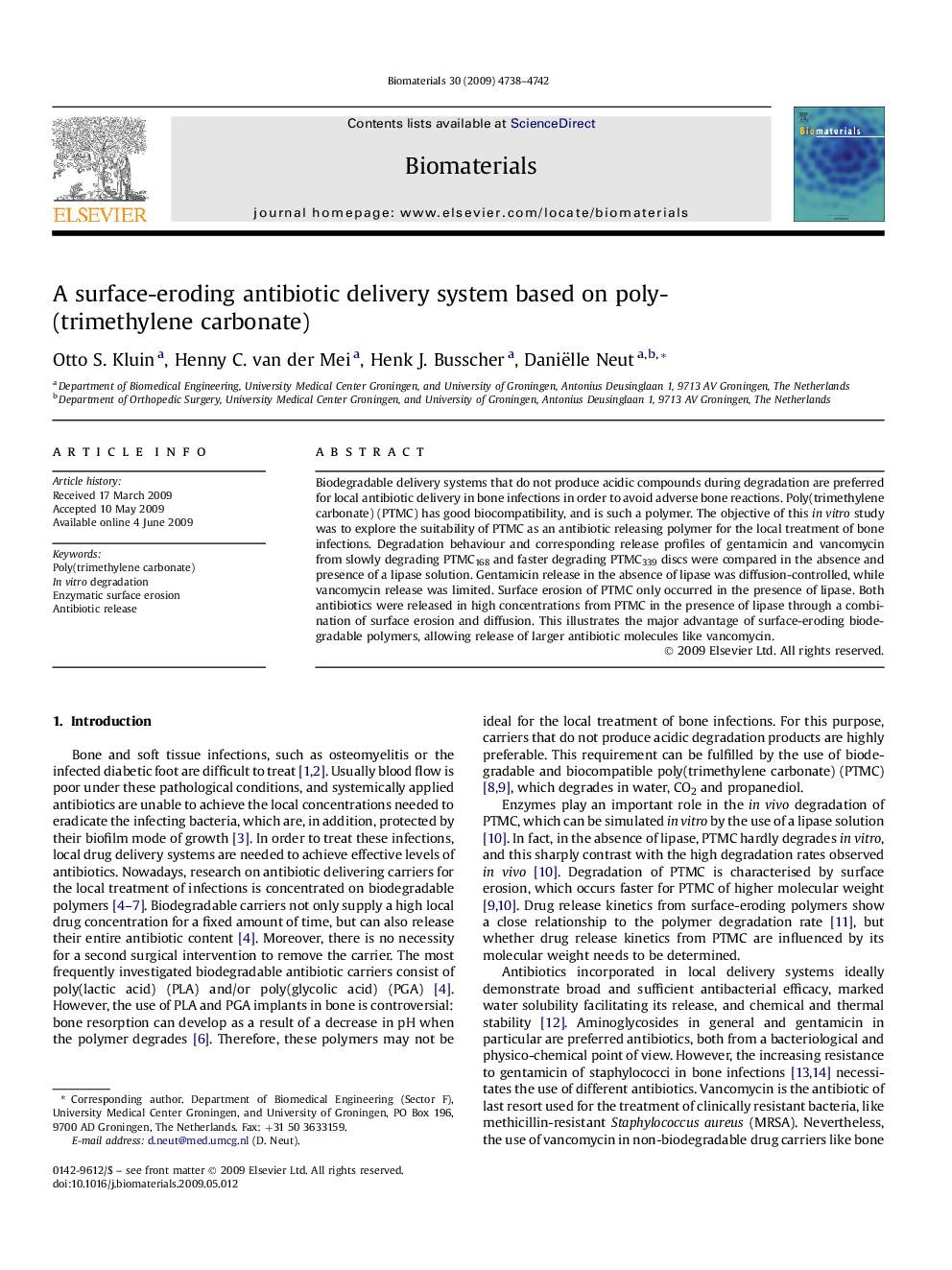| Article ID | Journal | Published Year | Pages | File Type |
|---|---|---|---|---|
| 10230080 | Biomaterials | 2009 | 5 Pages |
Abstract
Biodegradable delivery systems that do not produce acidic compounds during degradation are preferred for local antibiotic delivery in bone infections in order to avoid adverse bone reactions. Poly(trimethylene carbonate) (PTMC) has good biocompatibility, and is such a polymer. The objective of this in vitro study was to explore the suitability of PTMC as an antibiotic releasing polymer for the local treatment of bone infections. Degradation behaviour and corresponding release profiles of gentamicin and vancomycin from slowly degrading PTMC168 and faster degrading PTMC339 discs were compared in the absence and presence of a lipase solution. Gentamicin release in the absence of lipase was diffusion-controlled, while vancomycin release was limited. Surface erosion of PTMC only occurred in the presence of lipase. Both antibiotics were released in high concentrations from PTMC in the presence of lipase through a combination of surface erosion and diffusion. This illustrates the major advantage of surface-eroding biodegradable polymers, allowing release of larger antibiotic molecules like vancomycin.
Related Topics
Physical Sciences and Engineering
Chemical Engineering
Bioengineering
Authors
Otto S. Kluin, Henny C. van der Mei, Henk J. Busscher, Daniëlle Neut,
